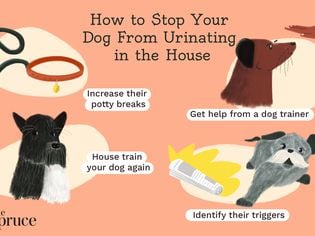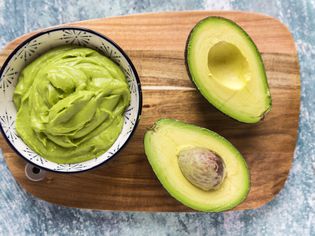Is fish oil good for dogs, and can you give human fish oil to dogs? There are many fish oil supplement options for both humans and pets, so it can be confusing to understand the differences among them all. Some fish oils are specifically designed for humans, while others are formulated for dogs, but they are often used interchangeably.
Fish oil can be beneficial to your puppy's heart, joints, skin, and more. However, dog owners need to understand how to make sure the fish oil product they are giving to their dogs is not only safe but beneficial.
What Is Fish Oil?
Fish oil is an extract from fish, most commonly salmon, anchovies, sardines, mackerel, or herring. Oils from these fish are used to make fish oil for both humans and dogs because they contain beneficial components called omega-3 fatty acids.
Fish oil for dogs and humans most commonly comes in liquid oil or a soft gel capsule. Fish oil may also be an ingredient in some soft chews, tablets, treats, and even dog food, but the amount in these products is not significant enough to provide a major benefit. Standalone fish oil supplements should be used to provide appropriate levels of omega-3 fatty acids.
Types of Fish Oil
In addition to formulations in a liquid or a soft gel form, some supplements may contain different types of fish oil. Triglyceride, ethyl ester, and free-form fatty acids are the three forms of fish oil that are available for both humans and dogs. Some forms of fish oil are more concentrated than others, which might limit the amount of oil being ingested, while still providing appropriate levels of omega-3 fatty acids. All three forms of fish oil are normally considered safe for both dogs and humans at recommended administration levels.
What Are Omega-3 Fatty Acids?
Omega-3 fatty acids are the components of fish oil that make it beneficial to you and your dog. In the body, certain molecules called eicosanoids play an important role in inflammation and perform other beneficial functions. Omega-3 fatty acids help the body make more of these helpful eicosanoids.
The most often studied types of omega-3 fatty acids are eicosapentaenoic acid (EPA) and docosahexaenoic acid (DHA), but there are actually 11 common types of omega-3s.
- Docosahexaenoic acid (DHA)
- Eicosapentaenoic acid (EPA)
- α-Linolenic acid (ALA)
- Eicosatetraenoic acid (ETA)
- Hexadecatrienoic acid (HTA)
- Stearidonic acid (SDA)
- Eicosatrienoic acid (ETE)
- Heneicosapentaenoic acid (HPA)
- Docosapentaenoic acid (DPA)/Clupanodonic acid
- Tetracosapentaenoic acid
- Tetracosahexaenoic acid (Nisinic acid)
EPA and DHA are the most commonly noted types of omega-3s in fish oil, but you may also see ALA and ETA on some product labels. The labels will say how many milligrams (mg) of each type of omega-3 are in the fish oil and these amounts are what the administration levels are based on.
Benefits of Fish Oil
Omega-3s may benefit your dog's heart, joints, skin, immune system, and more. Your veterinarian may recommend a specific amount of EPA, DHA, or other omega-3s depending on your dog's issues. If your dog is itchy, or you are simply looking to support skin and coat health in your dog, ask your veterinarian about the recommended dosage for your pet. Supporting your dog's kidneys, heart, joints, brain, or other body parts may require higher levels of administration of these omega-3s, so it is also best to discuss this with your veterinarian.
Administration recommendations for a human versus those for a dog may also be quite different, so you'll want to make sure you are giving appropriate amounts of the beneficial omega-3s to your dog.
Fish Oil for Humans vs. Dogs
Some fish oil products have flavorings, sweeteners, or other added ingredients that may not be good for your dog. If your fish oil supplement is pure fish oil, it may be safe to also give to your dog, but you should discuss it with your veterinarian first to be sure.
Side Effects of Fish Oil
At recommended administration levels, fish oil is very safe in dogs. Some diarrhea and vomiting are not uncommon anytime something new is suddenly introduced to a dog's diet, but this typically improves after a few days. Some dogs may experience excessively oily coats, dander, and a fishy odor to the breath and skin, but this will go away in a week or so if the product is stopped.










Comments on " Can I Give My Dog Fish Oil for Humans?" :